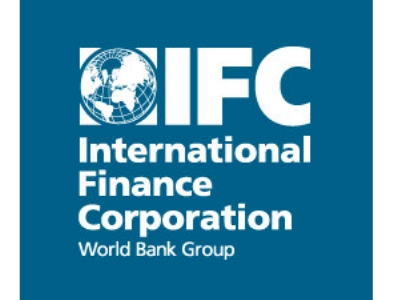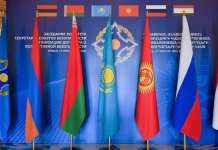IFC, a member of the World Bank Group, has arranged a landmark $140 million financing package for the Vorotan Hydropower Cascade, one of Armenia’s main power generating facilities, to bolster the country’s supply of clean energy.
This is the first major international debt financing package in Armenia’s power sector. The funding will go to ContourGlobal Hydro Cascade, a subsidiary of ContourGlobal, an international power- generation company that acquired the Vorotan Cascade in 2015. The package includes a loan of $45 million for IFC’s own account and parallel loans of $65 million from FMO, the Dutch development bank, and $30 million from DEG, the German Investment and Development Corporation.
The loans will help ContourGlobal upgrade the 404-megawatt Vorotan complex, parts of which are almost four decades old. As a result, the project is expected to generate around 1,150 gigawatt hours of electricity annually and will help combat climate change by preventing the release of more than 55,000 tons of greenhouse gases per year. The financing is expected to boost electricity reliability, providing a steady supply of clean power to additional 60,000 residential customers.
“We are very pleased to have completed this innovative long-term financing package for Vorotan and we would like to thank our partners at IFC, FMO, DEG, for their commitment to the project,” said Ara Hovsepyan, General Manager of ContourGlobal Hydro Cascade. “We would also like to thank the Government of Armenia for its work in facilitating these transactions. They provide a stable, long-term capital structure, which allows us to continue our work while making sure that the operational performance, safety, reliability, and efficiency of this plant are maintained at world-class standards.”
This financing package also marks IFC’s first debt investment in Armenian infrastructure. In addition to the loan, IFC is a sole provider of an interest rate swap, which will help ContourGlobal Hydro Cascade hedge the interest rate risk on the financing package, protecting it from any fluctuations in the interest rate. IFC is one of the few development finance institutions to offer hedging instruments to its clients—private sector companies in emerging markets—to better manage interest and currency risks.
“Supporting renewable energy is IFC’s top priority and is part of our commitment to address climate change,” said Wiebke Schloemer, IFC Regional Industry Head of Infrastructure for Europe, the Middle East and North Africa. “Globally, we have seen how private businesses can help spur the development of energy infrastructure. The upgrade of Armenia’s Vorotan complex will help provide clean energy for tens of thousands of people. This investment is also expected to open the door to additional private investment in the country’s vital infrastructure.”
The Vorotan Cascade includes three hydropower plants and provides 15 percent of Armenia’s electricity.
Increasing its capacity is key for Armenia, a country that imports fuel to cover around 90 percent of its energy needs.
In 2015, IFC bought a minority stake in ContourGlobal Hydro Cascade to support the entry of an established private sector power developer and operator in Armenia, helping the company acquire, operate, and rehabilitate the Vorotan Hydro Cascade.
Armenia became an IFC member in 1995. Since then, IFC’s long-term investment commitments have totaled $480 million, including nearly $118 million mobilized from other lenders. That has financed 49 projects across a range of sectors, including financial markets, manufacturing, agribusiness, services, and mining. IFC has also supported trade transactions worth more than $130 million through its trade finance program, and implemented advisory projects focused on private sector development.
In fiscal year 2016, IFC invested almost $19 billion in developing countries worldwide.












